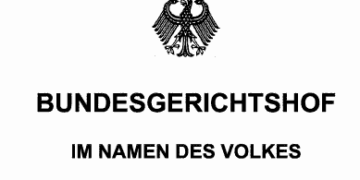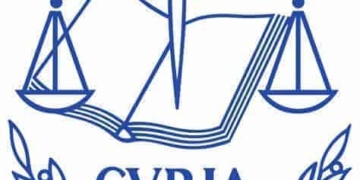A complete chain of title is the basic legal requirement for the financing, publishing, distribution and subsequent exploitation of a video game. This refers to the complete and verifiable chain of rights to all components of the game – from the source code, art assets and audio to trademarks and licensed material. Without reliable documentation, transaction costs increase, there is a risk of delays in release, retractions from stores, third-party claims and gaps in insurance cover. This article classifies the term in legal terms, shows the relevant German and European standards, transfers best practices from film and music to games and provides a practice-oriented contract and documentation architecture for studios, publishers and investors. At its core is the forward-looking drafting of contracts with founders, employees, freelancers and external rights holders as well as a robust rights clearance and audit concept.
Concept and relevance of the chain of title
In media practice, chain of title refers to the entirety of the documents that prove ownership/usage rights to all relevant materials of a project. In film and TV, this chain of documentation has been standard for decades because financing, E&O insurance, distribution and sales are hardly possible without a “clean chain”. The same standard is being applied in the games sector: Publishers, platforms and investors demand proof of the chain of rights to code, assets, music, trademarks, licenses and third-party content.
Legal framework: Germany and the EU
Copyright principles
In Germany, rights of use are granted in accordance with Section 31 UrhG; in addition, Sections 31a, 32, 32a, 32d, 32e UrhG regulate, among other things, unknown types of use, reasonable remuneration, bestseller compensation as well as disclosure and accountability obligations – the latter two now expressly along the license chain. Sections 69a et seq. of the Copyright Act apply to computer programs; Section 69b of the Copyright Act is important for employee programs.
EU Software Directive
Directive 2009/24/EC clarifies that if a computer program is created by an employee within the scope of the employer’s duties or in accordance with the employer’s instructions, the exclusive economic rights belong to the employer, unless otherwise contractually agreed (Art. 2 (3)).
Games are hybrid works: software, graphics, 3D models, animation, text, music/SFX, voice recordings, logos/trademarks, possibly real personality rights (actors, speakers). The chain of rights must cover each of these levels. Software may follow different rules under employment law than, for example, a soundtrack by an external composer; in the case of the latter, typical copyright contract law applies with a claim to appropriate remuneration and, if applicable, bestseller compensation. The disclosure obligations in the license chain (Sections 32d, 32e UrhG) now make it easier to screen downstream users.
Typical breaks in the games rights chain
- Lack of IP assignment agreements in the founding team or with early contributors.
- Unclear distinction between employee software (Section 69b UrhG) and free contributions.
- Verbal agreements with freelancers; no written transfer of rights for assets.
- Use of stock material without a documented license or with the wrong type of license (e.g. editorial instead of commercial).
- Open source components without license inventory; incompatibilities with copyleft licenses.
- Audio rights: composition vs. recording; GEMA repertoire; missing sync and master licenses.
- Trademarks/logos and personal rights (actors, streamers, athletes) without releases.
- Mods/UGC for which the EULA does not provide a clear license/moderation policy. (
Contract architecture for a clean chain of title
Founder and shareholder level
A comprehensive IP assignment to the company should already be regulated in the Founders’ Agreement: Assignment to all existing and future works, including source code, tools, pipelines, documentation and pre-production material. For non-software contributions, the general copyright contract law applies; for program codes in the employment relationship, Section 69b UrhG applies by law. For pre-existing works of individual founders, a license with a clear grant, term, territory, types of use and buy-out/upgrade options makes sense.
Employees
Employment contracts should contain a more precise IP clause that reflects Section 69b UrhG and, in addition to software, also contractually licenses all other protectable contributions (graphics, story texts, etc.). In addition, confidentiality, competition and ancillary activity rules as well as an invention/tools rider are useful in order to avoid conflicts with private side projects.
Freelancers and studios (subcontracting)
Clear work/license agreements are required with external service providers that regulate the full granting or assignment of the necessary rights of use (Section 31 UrhG). Appropriate remuneration (Section 32 UrhG), possible bestseller compensation (Section 32a UrhG) as well as information and accountability obligations of the license chain (Section 32e UrhG) should be addressed. In practice, a buy-out model is often sought; legally, the appropriateness of the remuneration must be taken into account.
External rights: music, fonts, trademarks, personal rights
Music rights require a separation between composition rights and master rights; additional rules apply to GEMA repertoire. For fonts, the license conditions of the foundry provider apply (app/embed licenses). Brands/logos require explicit licenses; personality rights (image/name/voice) require clear consent. In E&O contexts, a “clean chain” is a sine qua non.
UGC and mods
If the game allows mods, the EULA should define whether and how UGC is created, shared, moderated and licensed. Platform contracts (e.g. Steam Workshop) often grant far-reaching licenses in favor of the platform; developers should contractually reflect this to their own users and provide for clear prohibited content, commercialization rules and takedown processes.
Important blocks of clauses in developer, employee and freelancer contracts
Transfer of rights/right of use
Clear scope (exclusivity, term, territory, media/types of use), rights of adaptation and sublicense, avoid the doctrine of assignment of purpose, take into account clear typification of types of use and “future works” (Section 40 UrhG) as far as possible. Section 69b UrhG applies to software in the employment relationship; outside of this, Section 31 UrhG applies.
Appropriate remuneration, bestseller compensation, reporting
The remuneration must be appropriate; in the case of “hits”, Section 32a UrhG can enable subsequent adjustments. Clear reporting/audit rules and information rights along the license chain (Sections 32d, 32e UrhG) are recommended so that authors can check their claims.
Representations, warranties, indemnification
Studios give publishers guarantees regarding the rights chain and indemnify them against third-party claims. These guarantees are “passed on” internally to employees and freelancers. The scope and limits of the indemnification (cap, participation and control rights) should be carefully balanced.
Moral Rights/Personal Rights
In Germany, moral rights are pronounced; complete waivers are not permitted. Consent to certain changes and naming rules are permitted. Contractual clauses should be carefully formulated in order to avoid subsequent conflicts with edits, ports and live ops.
Open source compliance
An OSS policy with a compatibility check of licenses (in particular copyleft), third-party notices, source code provision obligations and SBOM documentation is mandatory. Publishers are increasingly asking for OSS inventories; violations can result in store delistings and contractual penalties. (General industry practice; contract checklists at publishers and platforms regularly include OSS inventories).
Brands, domains, app store identifiers
Brand clearing before accepting a game title prevents rebranding costs. Domains, social handles and store identifiers should be registered centrally to the company; assignment of rights in the founder and employee contract prevents later blockades.
Review and documentation system: from the rights matrix to the due diligence map
A sustainable rights clearance system consists of:
- Asset register with unique IDs (source, author, license, date, scope).
- Contract repository with full-text search and versioning.
- OSS inventory incl. licenses and obligations (notices, copyleft trigger, compliance check).
- Music rights map (composition, master, GEMA status, territory, duration).
- Talent releases (speakers, performers, influencer cameos).
- Brand/logo approvals and bold testing of planned in-game advertising formats.
- Change request process: every pipeline change triggers a rights update.
- DD-Pack for publishers/investors: Summary of chain, contracts, insurance, policies, audit trail.
Practical experience from film shows: Without a clear chain of title, financing and insurance fail – an experience that can be transferred 1:1 to games.
Publisher perspective: Why “Clean Chain” decides the contract
Publisher agreements contain representations & warranties on the chain of rights and far-reaching indemnities. Unclear chains lead to “exceptions” in disclosure schedules, higher retentions, stricter audit rights or kill rights. Recoup mechanisms and approval gates are often linked to proof of rights. Early preparation reduces transaction costs and improves deal terms.
Example structure for a contractual rights clause (blueprint)
- Granting of exclusive rights of use, comprehensive in terms of time, territory and content, to all elements of the work created by the contractual partner, including rights of adaptation, transformation, reproduction, distribution, performance, making available to the public, broadcasting rights, etc., in each case for all known and unknown types of use, insofar as legally permissible.
- Consent to adaptations and to the combination with other works, insofar as this is possible under copyright law; regulation of attribution.
- Assurance of freedom from third-party rights; obligation to obtain necessary consents/licenses.
- Exemption with cap and distributed obligation to cooperate, incl. notice and defense control mechanism.
- Reporting and documentation obligations; obligation to cooperate in register/store formalities.
- Remuneration regulation in compliance with § 32 UrhG; transparency/information regulations along the license chain pursuant to §§ 32d, 32e UrhG; reference to § 32a UrhG.
Mods/UGC: Rights chain in live ecosystems
If the title allows modding, users create new content on an ongoing basis. The EULA should therefore:
- provide for a non-exclusive, worldwide, transferable license to UGC for the benefit of the studio (purpose: hosting, distribution, marketing, porting),
- standardize clear prohibitions (IP third parties, infringements of personal rights, circumventing DLC, NSFW etc.),
- regulate commercial use (prohibited, donations allowed, special creator programs),
- Define moderation and takedown processes,
- Platform T&Cs (e.g. Steam Workshop) consistently.
Practical examples illustrate these points; major publishers also specify UGC licenses in their EULAs or modding guidelines.
Due diligence and insurability
E&O carriers and financiers demand robust documentation. A clean audit trail and an up-to-date rights matrix speed up processes, reduce premiums and prevent blocking on platforms. These requirements have long been in place in the film industry; games are increasingly following this practice. ( WIPO)
Practical guide: Step-by-step to the “Clean Chain”
- Create IP inventory (code, assets, audio, texts, brands, contracts).
- Harmonize contract templates (Founder, Employment, Freelancer, Composer, Voice, Brand License).
- Establish OSS policy and SBOM; regular reviews in CI pipeline.
- Rights check before each milestone acceptance (internal, then external).
- Implement UGC/modding policy in EULA; define moderation/notice-and-takedown.
- Brand/title clearing before marketing launch; secure domain/handles.
- Maintain DD-Pack: rights chain, insurances, releases, audits, register extracts.
- Alert system for third-party content (fonts/stock/voice models).
- Team training: “no asset without a license” – documentation obligation in the pipeline.
- Contractual back-to-back protection of all warranties.
Common misunderstandings in everyday studio life
- “Employees develop software – so everything automatically belongs to the studio.”
Correct for computer programs according to § 69b UrhG; wrong for other creative contributions without contractual provisions. - “A pay-once buyout solves every question about remuneration.”
The appropriateness and a possible bestseller compensation must still be considered. - “One-time license is sufficient for all platforms and formats.”
Unknown types of use and porting require explicit regulations. - “Mods regulate themselves via the platform T&Cs.”
Separate EULA rules are necessary to balance studio and community interests.(S
Publisher and platform contracts: Close interfaces cleanly
In addition to funding/advance, publisher term sheets regularly contain extensive representations/warranties on the chain of rights, audit rights, approval gates and recoup mechanisms. Studios that proactively document the chain of title can negotiate harder on IP ownership, ROFR/sequel rights and cap logics. Industry reports and practical contributions prove that unclear chains lead to takeover rights and one-sided protection clauses to the detriment of developers.
Checklists and sample annexes for contracts
- Asset directory with rights grids per asset.
- OSS inventory: package, version, license, obligations, compatibility, triggers.
- Composer agreement rider: Work-for-hire equivalent (DE-compatible), master/sync rules.
- Voice talent release: Consents, buy-out, AI voice use only with explicit regulation.
- Brand/logo license: territory, media, scope, duration, quality control, morals clause.
- UGC Policy Annex to the EULA: Scope of license, monetization, moderation, takedown.
Conclusion
Structuring the rights chain at an early stage shortens negotiations, reduces liability risks, increases insurability and strengthens your own negotiating position with publishers and platforms. Legal guidelines are provided by Section 31 UrhG ff. and Section 69b UrhG as well as the EU Software Directive – however, practical implementation requires systematic contract and documentation design across all parties involved in the project. Studios that do this homework conclude contracts faster, more cheaply and on better terms.











































